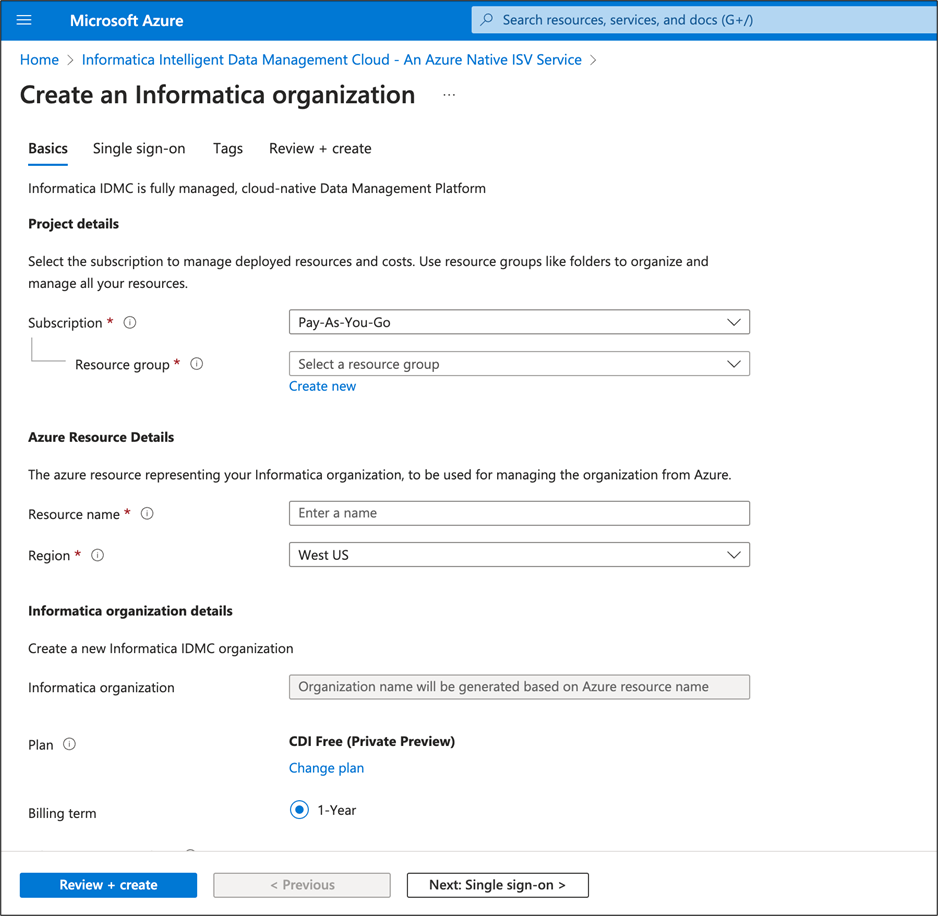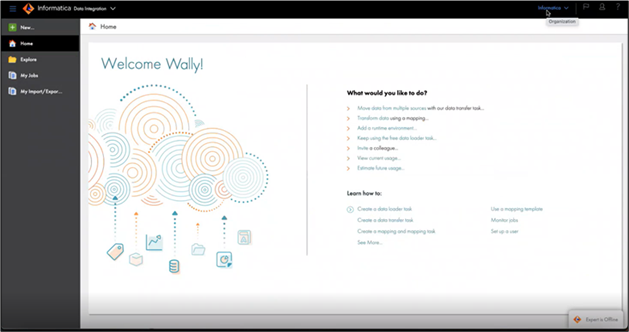How to Experience Informatica IDMC Without Leaving Your Microsoft Azure Cloud Experience
Tap Into IDMC Capabilities With New Informatica Azure Native ISV Service
This blog is co-authored by Pavaneswara Lekkala, Principal Program Manager at Microsoft.
As organizations embrace digital transformation, they're experiencing a change in how workloads are managed. More and more, these workloads are moving towards multi-cloud and hybrid cloud setups. What's interesting is that modern organizations are now eagerly adopting cloud-native technologies like containers, microservices and serverless computing.
Why the shift? Because these technologies offer more efficient, scalable and cost-effective solutions compared to traditional approaches. Plus, embracing cloud-native tools ensures that organizations are future-proofing their applications and services as the technologies evolve and improve over time. The rising popularity of these technologies represents a fundamental change in how organizations approach software development and deployment. And it opens up new possibilities for innovation in today’s demanding landscape.
The amount of data created and consumed is expected to grow exponentially over the next decade, which will only add to the expanding complexity of distributed applications deployed on a cloud-native landscape.1 This proliferation has radically changed data integration requirements for many organizations. For example, advanced enterprises want solutions with unlimited capacity and performance-scaling capabilities, along with core requirements of data ingestion, data integration, data governance and master data management.
To help enterprises manage the complexities of hybrid, multi-cloud environments and accelerate their digital transformation journey, Informatica and Microsoft have been collaborating on some unique offerings. At Informatica World this past May, we announced the integration of Informatica Intelligent Data Management Cloud (IDMC) as an Azure Native Independent Software Vendor (ISV) Service. This integration enables Azure customers to transact with Informatica through the Azure Marketplace and to provision the entire IDMC platform within the Azure console. Why is this a big deal?
With the new Informatica Microsoft Azure Native ISV Service, Azure customers can leverage the full range of benefits provided by IDMC within the Azure cloud environment. The integration provides a seamless and cohesive experience for Microsoft Azure customers, encompassing intelligent data management and diverse runtime options (including secure agent and Elastic Spark on Kubernetes), conveniently delivered in a serverless fashion.
By utilizing IDMC as an Azure Native ISV Service, customers can take advantage of the platform's cloud-native architecture, while seamlessly operating within the Azure cloud environment. Let’s review some of the key benefits of this integration.
Accessing the Rich Benefits of IDMC as an Azure Native ISV Service
By seamlessly integrating CLAIRE — our AI engine — with Microsoft Azure, we empower Azure customers with clear insights and enable them to make intelligent, data-driven decisions using the power of our AI technology. This means being able to tackle your most pressing data management needs seamlessly and confidently. Read on to learn about the upsides of this integration.
- Integrated onboarding: Through the Azure Marketplace and Portal, customers have the capability to provision and manage IDMC integration effortlessly. As shown in Figure 1, the onboarding process is seamless, automatically configuring the Informatica organization for you. With just a few clicks, you can provision an IDMC organization and start building data pipelines. This is a welcomed time-saver in today’s fast-paced climate.

Figure 1: Creating an IDMC organization through the Azure Portal.
- Single sign-on: Enabling single sign-on (SSO) via the Azure Active Directory simplifies the authentication process, eliminating the need for separate credentials to access the IDMC portal. This streamlined approach enhances security and compliance, while also providing a centralized platform for troubleshooting, optimizing performance and promoting collaboration.

Figure 2: Integrating IDMC with the Azure Active Directory for SSO.

Figure 3: Launching IDMC directly through the Azure Portal.
- Administration of IDMC runtimes: Within the Azure Portal, you have the ability to provision an Informatica organization and create runtime environments on either a single virtual machine (VM) or multiple VMs. You can also use Informatica Cloud Data Integration Advanced Serverless, a service of IDMC, to eliminate the need for creating VMs to run secure agents.
Informatica Cloud Data Integration Advanced Serverless makes this possible by decoupling design time experience from runtime, which frees up developers from complexities of the runtime environment. This allows your developers to create integration mappings using the mapping designer, while Informatica executes these mappings in our serverless cloud environment, which includes Spark processing.
The separation of design time and runtime also enables developers to focus on a user-friendly drag-and-drop interface, eliminating the need to understand the complexities of Spark or learn programming languages such as Java, Python or Scala. Informatica makes it easy by automatically converting the application logic into optimized instructions to run on the underlying engine.
- Deeper Azure command-line interface (CLI) integration: You can easily manage IDMC resources from the Azure CLI to further extend deployments of those resources with Azure Resource Manager (ARM) templates or other third-party infrastructure as code (IAC) platforms, such as Terraform. Deeper CLI integration enables customers to automate repetitive tasks and complex processes using scripts. This allows for greater flexibility and customization in managing Azure resources. Plus, the CLI can easily be integrated into continuous integration/continuous deployment (CI/CD) pipelines, enabling seamless integration with DevOps practices and workflows.
The bottom line: This joint innovation makes it easier for Azure customers to have a simplified, unified experience to access, provision, onboard, configure and manage IDMC on Azure from within the Azure Portal. Sounds like a win to us!
Read on to learn about another industry game-changer.
Free, Fast and Frictionless Cloud Data Integration
In early 2023, Informatica launched a free version of Informatica Cloud Data Integration, named, you guessed it, Informatica Cloud Data Integration-Free (CDI-Free).
Because IDMC is available as an Azure Native ISV service, customers can directly access CDI-Free through the Azure Portal. This enables data practitioners to quickly build data pipelines within minutes. For example, operations teams can use CDI-Free to load, integrate and analyze high-quality campaign, pipeline, forecast and revenue data — all for free.

Figure 4: Welcome screen of Informatica CDI-Free.
Built on the foundation of our proven data integration solutions, CDI-Free is a simple tool to help kickstart your data integration journey. You can eliminate budget concerns and unburden IT with a self-serve, no-code, zero install, wizard-driven experience. Plus, you get out-of-the-box support for all major cloud data warehouses and a wide range of data sources. The best part? It scales with your changing business needs — a must-have in today’s fast-paced market.
Next Steps
Are you ready to tap into the power of Informatica IDMC without ever leaving Microsoft Azure?
- Sign up for a private preview of the native, deep integration between Informatica and Microsoft.
1https://www.statista.com/statistics/871513/worldwide-data-created/#:








